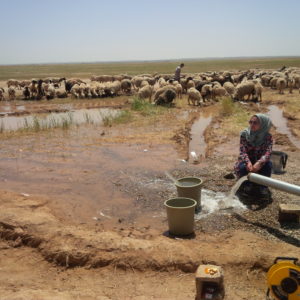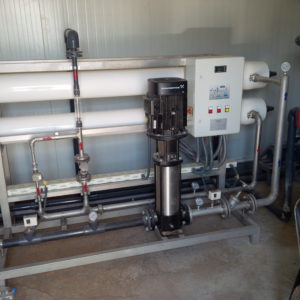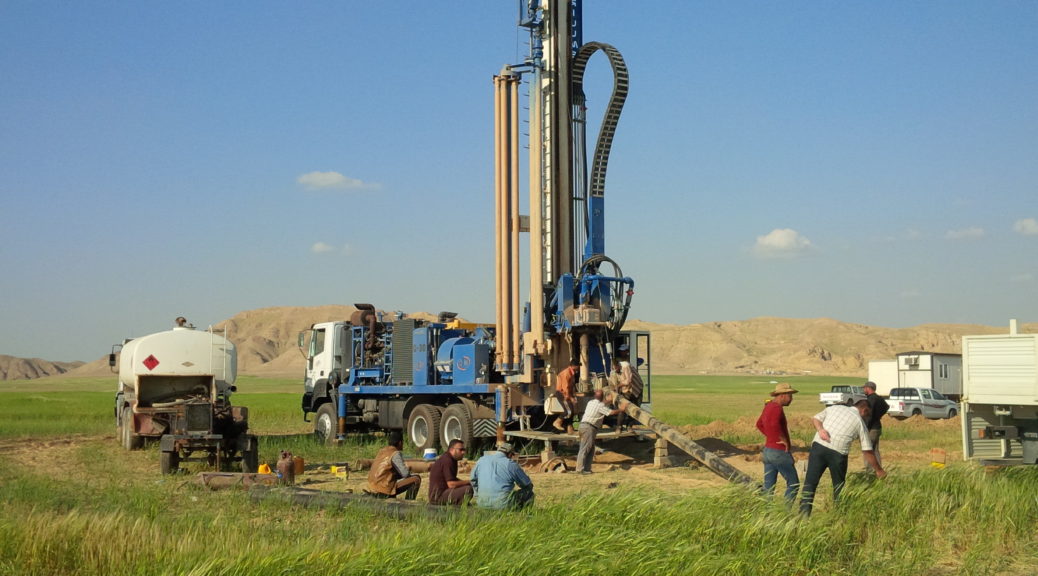Technical assistance: Drilling of drinking water borehole and setting up a reverse osmosis station for the supply of IDPs in the Tuz region, Terre des Hommes, Iraq, May 2017

Sheikh Abaad’s camp is on the borderline between the Kurdish and Shia-influenced militia zones near the Hawija pocket held by ISIS in May 2017. Terre des Hommes has set up drinking water for the Sunni population driven from his village by the conflict. In a difficult hydrogeological, security and administrative context, this project financed by ECHO suffered two failures. A first borehole was broken and the second was unusable because it gave too turbid waters to be exploited.
The mission was to produce a positive borehole in less than 20 days and put the reverse osmosis plant into operation.

From a hydrogeological point of view, there is no exploitable surface water and the alluvial aquifer located between 40 and 100m bgl is composed of sand banks, clays and silts making its exploitation difficult. This aquifer also has inclusions of gypsum making the water unfit for consumption (7000μS.cm-1).
After completing the negotiations with the local companies, obtained the governmental authorizations and organized the works, the third drilling was carried out with 100m of depth. Pumping tests have demonstrated that the flow of the borehole was sufficient to meet the needs of the target population. The groundwater test disturbed by conflict-related incidents nevertheless showed that the resource was stable and that salinity could decrease during its exploitation.
The reverse osmosis station was then put into operation and its process optimized to guarantee its longevity and reduce its costs. A full study of operating and maintenance costs was also carried out in order to transmit the data to the local town hall so that it could set up an effective cost recovery system.
